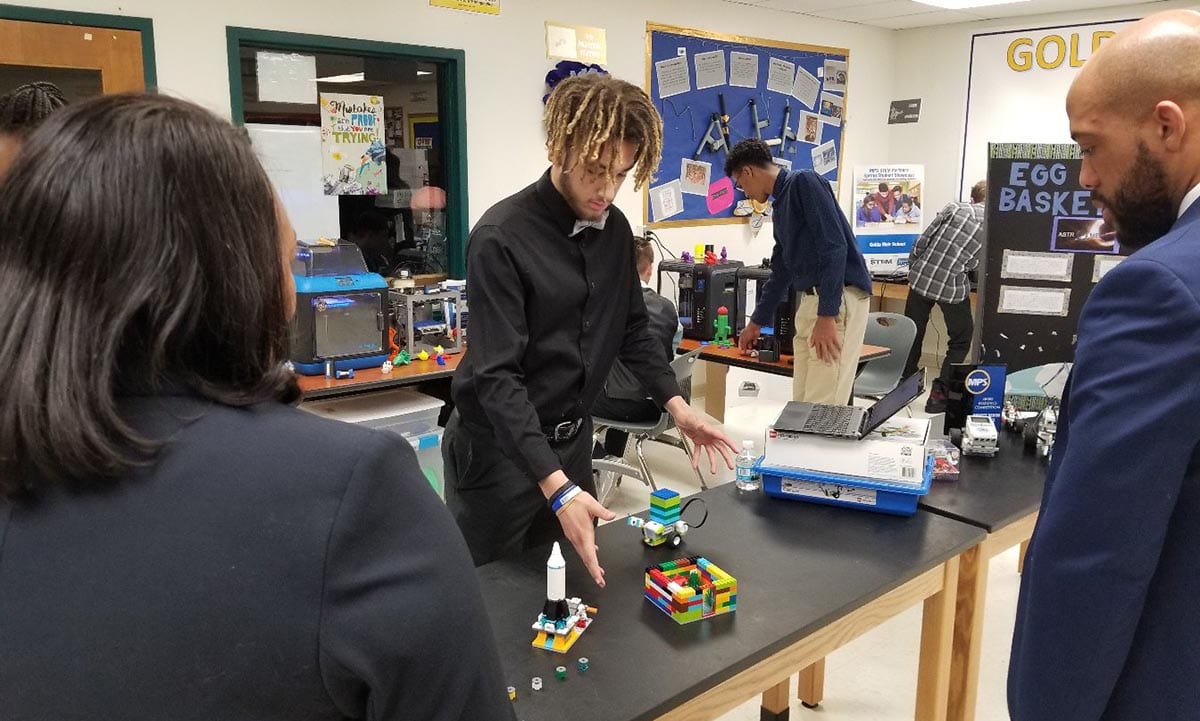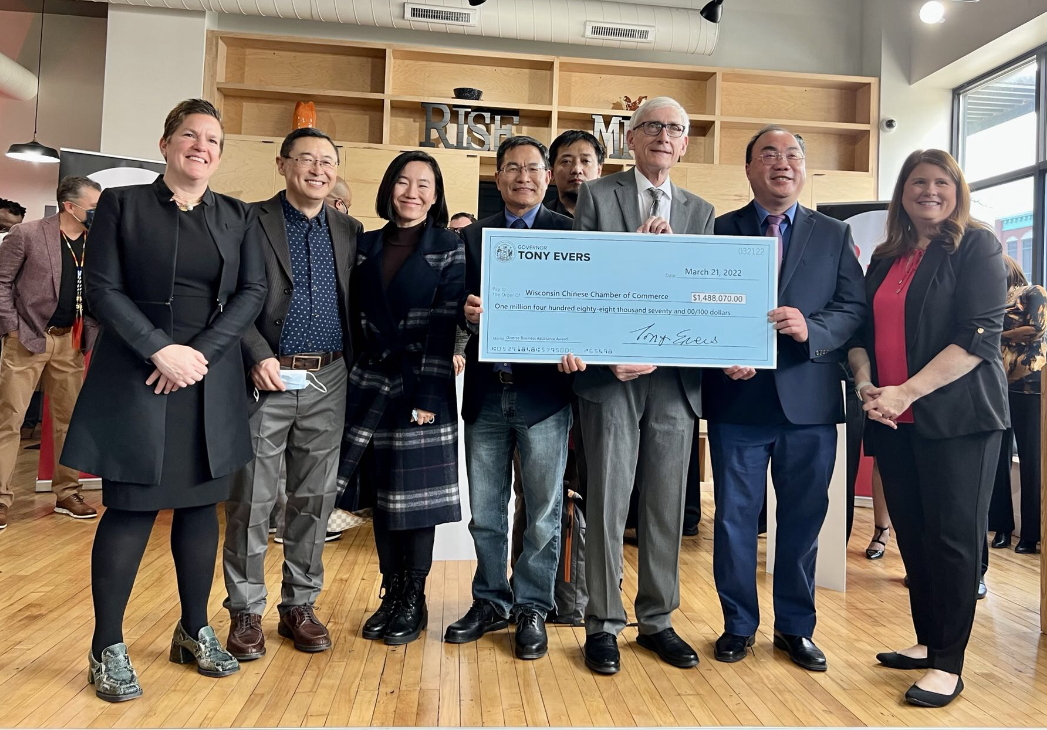
Wisconsin Lt. Gov. Mandela Barnes watches as a student demonstrates a robotics project at the fab lab at Golda Meir School in Milwaukee.
WEDC is now accepting applications for the Fabrication Laboratories (Fab Labs) Grant Program, which provides funding to help public schools build or expand fab labs that help students master skills that are in high demand in the job market.
The program is designed to support hands-on science, technology, engineering, arts and math (STEAM) education by assisting public school districts with equipment purchases used for instructional and educational purposes in fab labs in Wisconsin schools. The fab lab environment enables students to learn the skills necessary to thrive in the 21st century global economy.
Because the fab labs are required to be accessible to the community, they contribute more broadly to economic development by sparking innovation among Wisconsin entrepreneurs, inventors and small businesses.
The program, now in its fifth year, has invested more than $2.1 million through 88 grants to create or improve Wisconsin school districts’ fab labs.
“This program is an important investment in our education and workforce development to ensure that Wisconsin students have the skills and training necessary to compete in our rapidly growing, technologically driven world,” said Ann Hyra, fab labs project coordinator for WEDC.
The incentives in this program are grants of up to $25,000 for individual school districts or up to $50,000 for consortia. The Fab Labs Grant Program has an annual competition for funding. Applicants may only be awarded one grant per cycle.
All applicants must match 1:1 the amount of funding provided by WEDC. During FY20, WEDC is continuing a moratorium on applicants who have already received three Fab Labs Grants. (Milwaukee Public Schools are exempt from the moratorium.)
Fab Labs Grants will be awarded through a competitive process, with applicants evaluated based on readiness and long-range planning, curriculum, business and community partnerships, financial need and previous awards.






